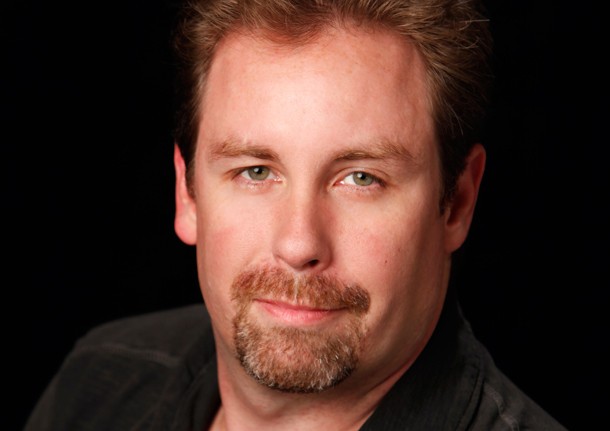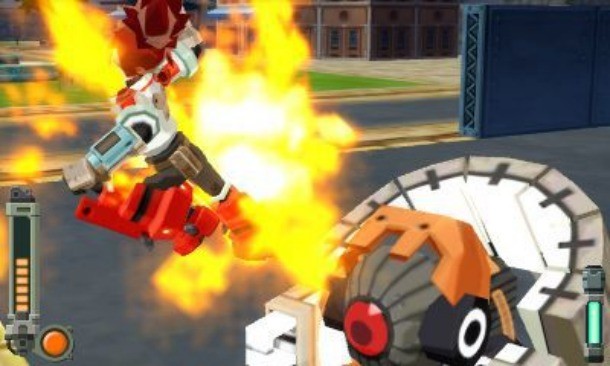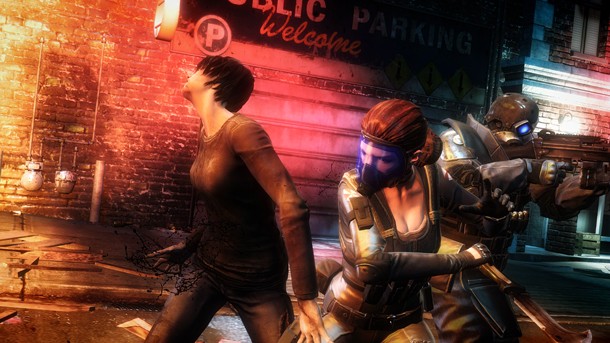Please support Game Informer. Print magazine subscriptions are less than $2 per issue
Capcom Talks Mega Man, Franchise Fatigue And More

For our article "What's Happening at Capcom" in issue 225 of Game Informer, we spoke with Christian Svensson, Capcom’s senior vice president of strategic planning and business development. We talked about Capcom's role in the Japanese game market, the fan fallout over Mega Man Legends 3, working with Western developers, and more.
Is there one core philosophy that Capcom holds in order to remain such a relevant Japanese publisher in a world where critics prophesize the country’s declining relevancy in the game market?
I think what pundits are reacting to is a fairly marked divergence in consumer tastes in the Japanese market from Western markets and perhaps even other Asian markets (particularly China and Korea, which are so PC online focused). I don’t dispute that. For me, the disconnect in the pundits’ conclusion though, is the supposition that Japanese publishers can only appeal to Japanese tastes. I disagree that that is a foregone conclusion, and not just as it applies to Capcom, but probably to one or maybe two other major Japanese publishers as well.
To that end, Capcom’s strategy for remaining relevant globally is really a multi-pronged approach. Console and PC games will remain at the core of what we do for the foreseeable future, and our teams in Osaka and Tokyo will remain masters at creating products that resonate globally. Our technology will remain at the cutting edge, easily able to compete with the best from the West. Most experiments in new IP will be lead by Japan, but we’ll also be trying collaborative new takes on our existing brands using Western developers, as seen with Dead Rising 2, Resident Evil: Operation Raccoon City, DmC and other titles we’ll be revealing in the future. Lastly, you will also see some new IP being born in the West, made specifically for Western audiences but with significant input from our seasoned Japanese creators.
Another point of expansion is within the mobile and social spaces. Our mobile team at Beeline, which is based in the West, has been a leader in iOS gaming, forging new ground outside our core brands and touching broader audiences worldwide. We’ll be trying to apply their learnings to mobile content that makes use of our core brands, which have global appeal, with our mobile teams from Japan. Additionally, we will be making investments in the social gaming space. We’ll have more news to come on that when we’re ready but suffice to say, I think we’ll be tackling that space a bit differently than what will immediately jump to your mind.
Lastly, expanded global presence will also increase our visibility to new legions of fans across all of our businesses.
So to sum up, yes, Capcom is a Japanese company, but we have global operations and reach and brands that continue to resonate globally. It’d be a huge mistake to write us off when we’re really just getting warmed up.
Mega Man has played an important role in Capcom’s catalogue for many years, but recently he’s been missing in action. Is the mascot’s absence part of a larger plan to refocus at Capcom?
Change has been a constant during my six years at Capcom (vastly for the positive) but I want to be crystal clear on this point. Mega Man is a key brand for Capcom and will remain so. I don’t have any products we’ve announced publicly that I can point to and say “see, I told you” but there are “top men” (“top men”? “Yes, top men”) within Capcom thinking about the future of the brand and where it’s going. We will have official announcements in due course.
From an outsider, Capcom appears to be in a state of unease with its community. Fans have reacted negatively to the canceled Mega Man games, specifically the cancellation of Mega Man Legends 3 after they were called upon for development help. What are Capcom’s plans to win back the trust of their most hardcore fans?
This is absolutely an issue that keeps me up at night. Unfortunately there are times that we have to make decisions that don’t make sense to the community and the fallout, while understandable is regrettable. Our relationships with fans are extremely important and I know we’ve got some that are disenfranchised right now.
Unfortunately, in this situation, there is no panacea. It’s going to take time to rebuild those bridges. Product cycles are long and it’ll be a little while until fans can see the light at the end of the tunnel. And the last thing I want to do is prematurely announce something in the name of sating the fans that gets cancelled or redirected later, thereby creating an even larger wound. I can only ask for people’s patience.
In the meantime, we’re going to be stepping up our community engagement efforts in the West.
For example, we recently introduced the concept of “Fright Clubs” for Resident Evil and Dead Rising projects patterned after our extremely popular “Fight Clubs”. In addition we have now established Fight Clubs in the UK and will be rolling them out in Europe over the coming months. We’ve got a few ideas for how to expand these concepts to some of our other brands too, but I’m not ready to talk about those yet.
Lastly and possibly most importantly, we’ve got a relaunch of our extremely popular Capcom-Unity.com site coming soon that I hope will provide deeper engagement with Capcom employees and significantly expanded functionality.

Capcom appears to be placing heavy stock in its fighting games and Resident Evil. Is there any worry of oversaturating the market with these types of games?
It is fair to say that Resident Evil and Street Fighter are two of our pillar franchises and as such we want to continue their success. That said, we’re aware of the risks of brand or even genre fatigue and we hope that by keeping things fresh, we can keep fans excited and minimize these risks. For example, moving from Street Fighter IV to Street Fighter X Tekken with major changes in brand and mechanics is a big deal. We’ve also taken the Resident Evil universe in a very different direction by introducing multiplayer focused, third person shooting gameplay in RE: Operation Raccoon City.
Though the company has a stable of trusted brands, Capcom is also taking chances with new IP like Dragon’s Dogma and Asura’s Wrath. Unlike previous efforts to create new IP like Dark Void, or reinvigorate an old franchise as with the Bionic Commando reboot, Asura’s Wrath and Dragon’s Dogma are both being developed in Japan. Does this signify a departure from working with Western developers on titles?
On the contrary, there is still a great willingness to work with external developers to compliment the output of our internal teams. We’ve been lucky enough to work with some extremely talented Western teams like Slant Six on RE: ORC, Ninja Theory working on DmC and Capcom Game Studios Vancouver, which was formerly Blue Castle Games until we acquired them, who did Dead Rising 2 and Dead Rising 2 Off The Record.
Naturally, you will be seeing future titles developed by Capcom Vancouver and we have other cool projects in the pipeline that are being developed by external studios, including some working on new IP.
Be sure to also check out our interview with former Capcom producer Ben Judd.










